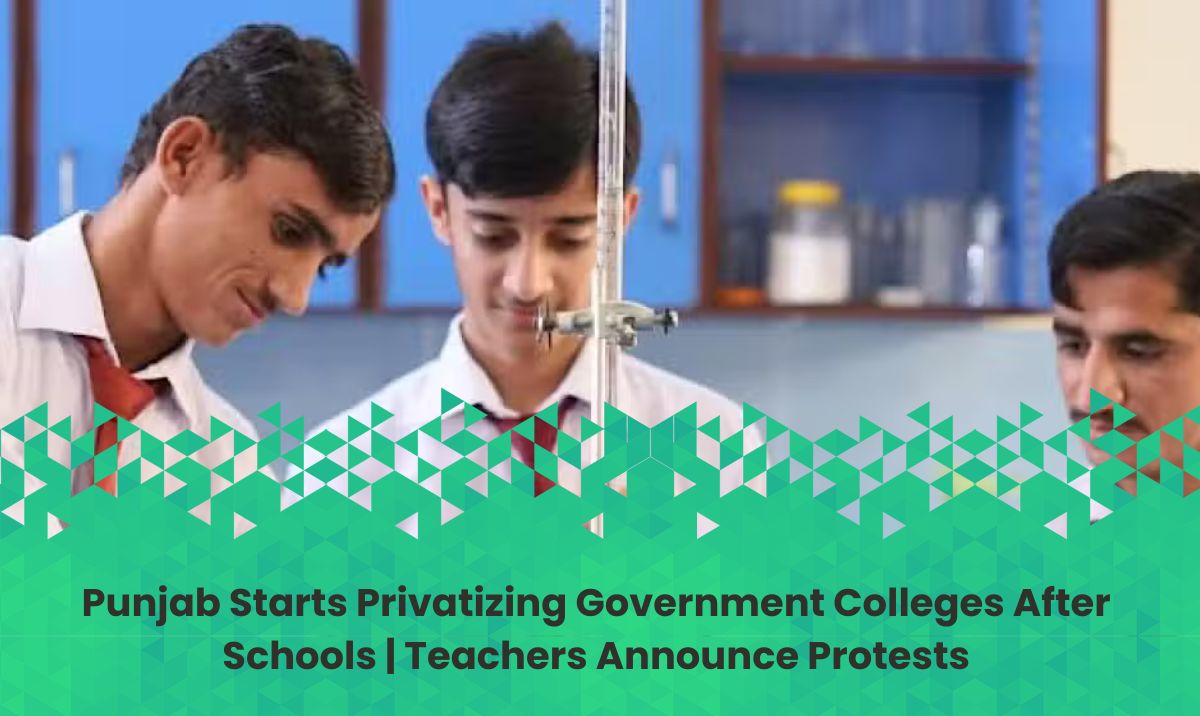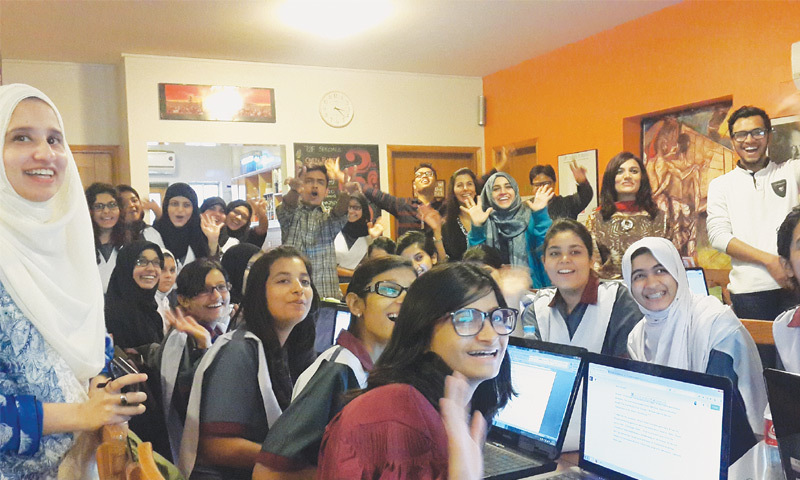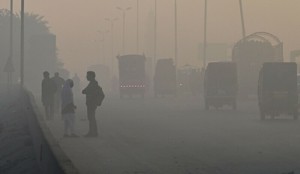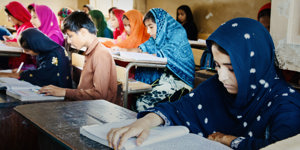
The Punjab government has expanded its controversial education privatization program, initiating the process of transferring government colleges to private management. After outsourcing thousands of public schools earlier this year, the move to privatize colleges has triggered widespread criticism from teachers’ associations and education stakeholders across the province.
According to official sources, Punjab currently operates around 750 public colleges, and the government has approved the outsourcing of 100 institutions in the first phase. This includes both commerce colleges in Rawalpindi, which are now being handed over to private organizations for administrative control and management.
The development comes shortly after the provincial government successfully privatized 12,500 public schools. Now, the policy shift towards colleges has intensified the debate over the future of public education in Punjab.
Thousands of Schools Already Privatized
Punjab’s education privatization program has been rolling out in phases since early 2024. So far, 12,500 schools have been transferred to private management through partnerships with non-governmental organizations (NGOs) and private education trusts.
Starting November 1, 2025, another 7,000 schools — primarily primary and middle-level institutions — will be outsourced as part of the next phase. The criteria for selection are based on student enrollment, with schools having fewer than 100 students being prioritized for privatization.
Staffing levels in these institutions will also depend on the number of enrolled students, while performance indicators will be monitored under the new management model.
Government’s Rationale Behind Privatization
Punjab Education Minister Rana Sikandar Hayat defended the decision, arguing that the current financial model for public colleges is unsustainable. He stated that the government spends Rs. 300,000 per student annually in some colleges, which he described as an “inefficient use of public funds.”
To improve learning standards and optimize spending, the minister announced the government’s plan to establish modern commerce colleges equipped with advanced IT labs, high-speed internet, and up to 400 computers.
“These new institutions will bridge the gap between traditional education and market-driven skills. We want to prepare our students for the digital economy,” Rana Sikandar Hayat emphasized.

He further stated that the outsourcing initiative does not mean the end of public education but rather a shift toward public-private partnerships (PPP) designed to enhance educational quality and accountability.
Teachers’ Unions Strongly Oppose the Move
Despite the government’s assurances, teachers’ associations and unions across Punjab have rejected the privatization plan, calling it an “attack on free education.” Representatives of the Punjab Professors and Lecturers Association (PPLA) and Punjab Teachers Union (PTU) have vowed to launch a province-wide protest movement.
Union leaders argue that privatization will lead to job insecurity, loss of employment benefits, and increased commercialization of education.
“We strongly condemn the government’s attempt to hand over public colleges to private entities. This move will deprive poor students of affordable education and turn public institutions into profit-making businesses,” said a senior PPLA spokesperson.
Teachers have announced sit-ins, rallies, and strikes across the province, warning that the government will face “massive resistance” if the policy is not withdrawn.
Privatization Timeline and Future Plans
The Punjab government aims to complete the privatization of both schools and colleges by March 31, 2026, ahead of the new academic year. Officials believe this timeline will allow enough time for private organizations to assume control and implement new management systems.
Under the proposed model, outsourced institutions will continue to follow the Punjab Curriculum and Textbook Board (PCTB) syllabus, but administrative powers — including staff hiring, performance evaluation, and budget management — will rest with the private partners.
The government has also hinted at introducing performance-based contracts to ensure that education standards and enrollment rates do not decline after privatization.
Mixed Reactions from Parents and Education Experts
Parents and education experts have expressed mixed reactions to the initiative. While some believe that private management could bring discipline, better infrastructure, and improved teaching quality, others fear that it will widen the gap between rich and poor students.
Educationist Dr. Amir Riaz commented, “The privatization of schools and colleges might temporarily improve management, but it risks undermining the constitutional right to free and equitable education. The government should focus on reforming the public system rather than outsourcing it.”
Parents in several districts have also expressed concerns that privatized institutions could eventually introduce higher tuition fees, making education unaffordable for low-income families.
A Divisive Policy at a Critical Time
As Punjab transitions into what the government describes as a “modern education management model,” the issue of privatization continues to divide opinion. While authorities highlight efficiency, accountability, and modernization, critics argue that the policy compromises accessibility and fairness.
With the privatization of 100 government colleges already underway and the outsourcing of thousands of schools continuing, the next few months are expected to witness intense protests and negotiations between teachers’ unions and the provincial government.
If the plan proceeds as scheduled, Punjab’s education landscape could undergo one of its most significant transformations in decades — for better or worse.















